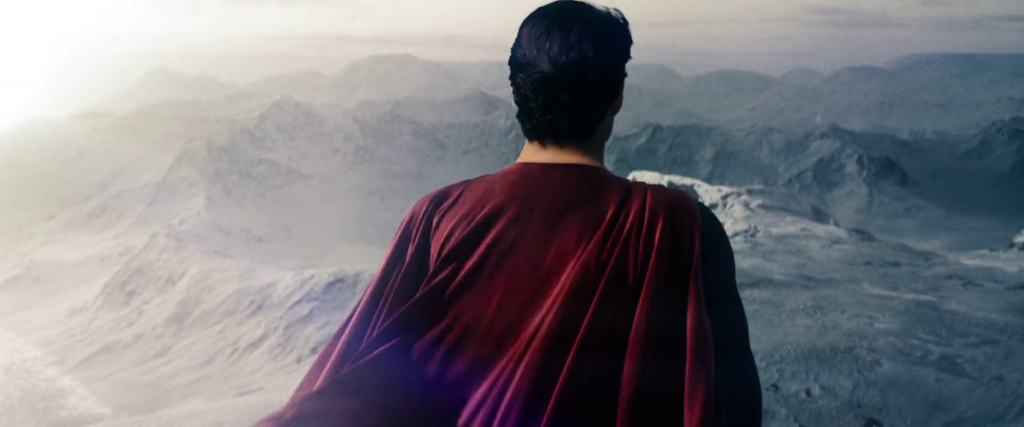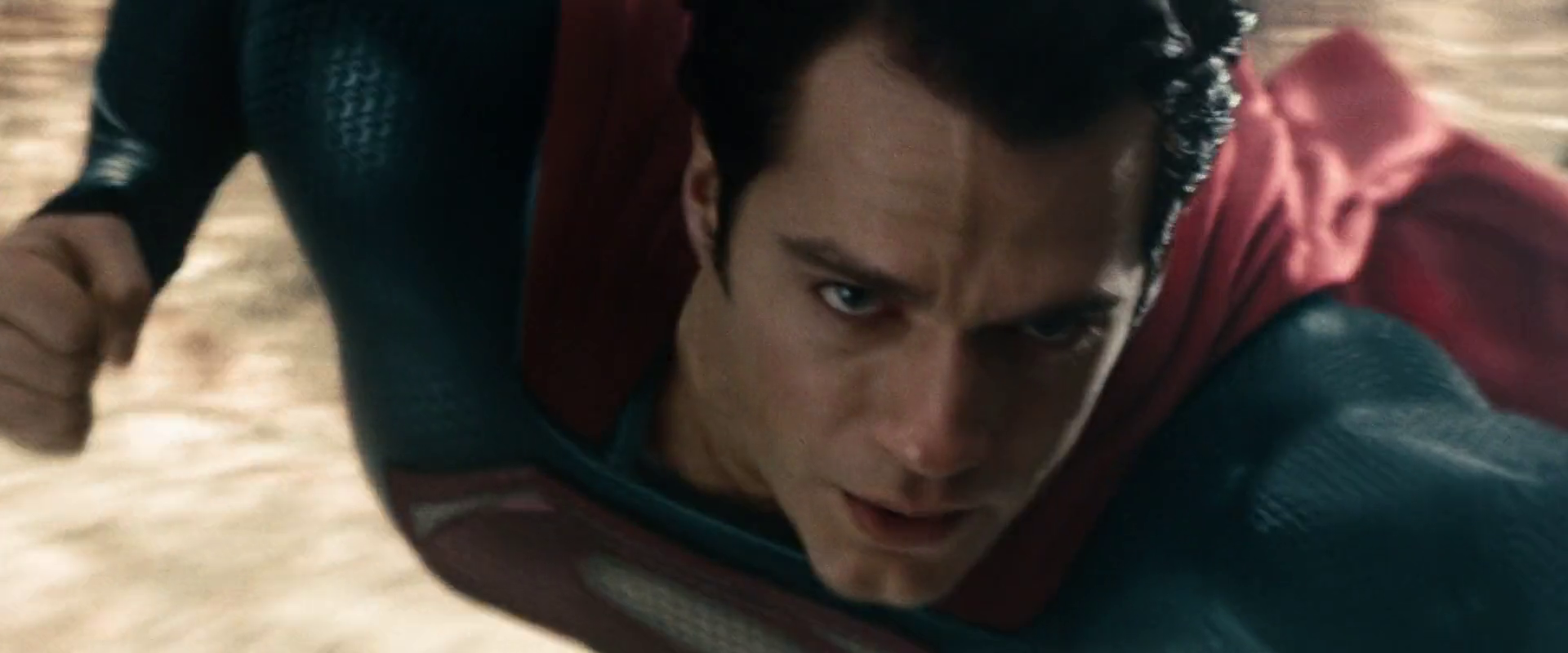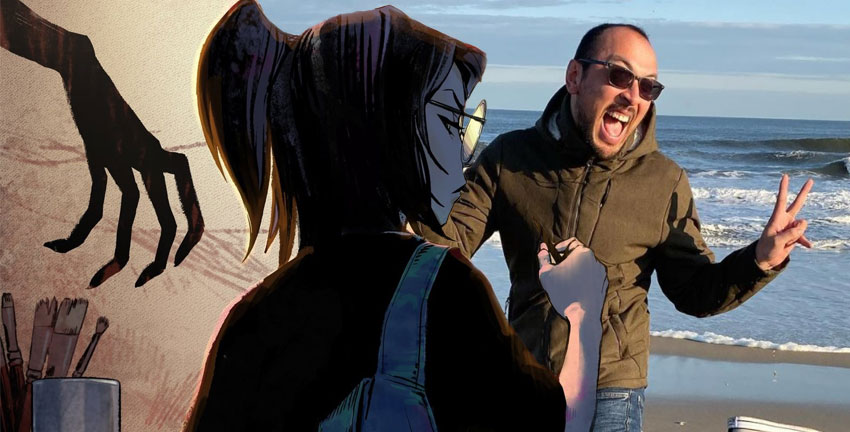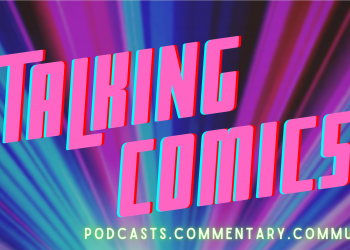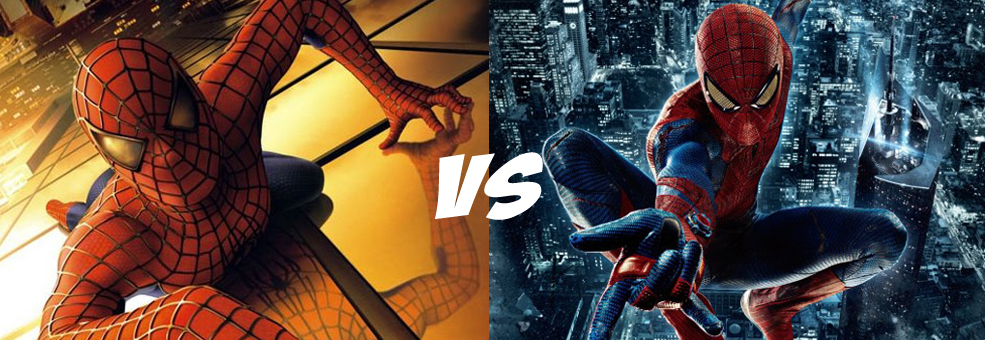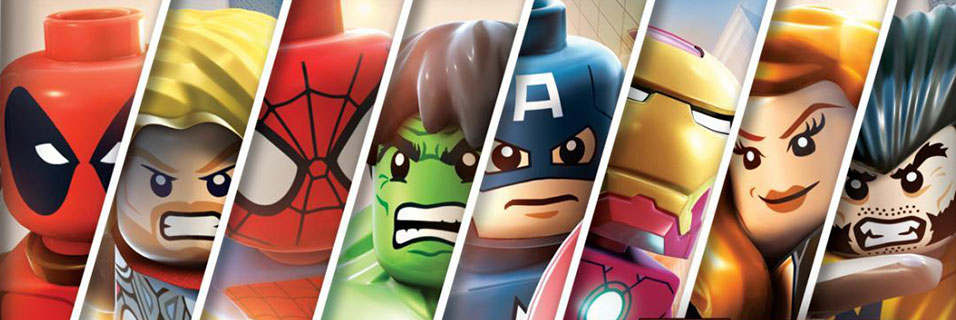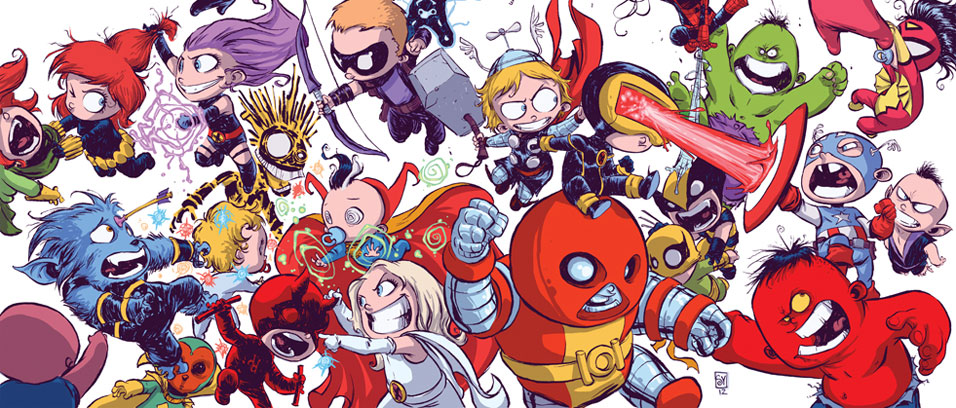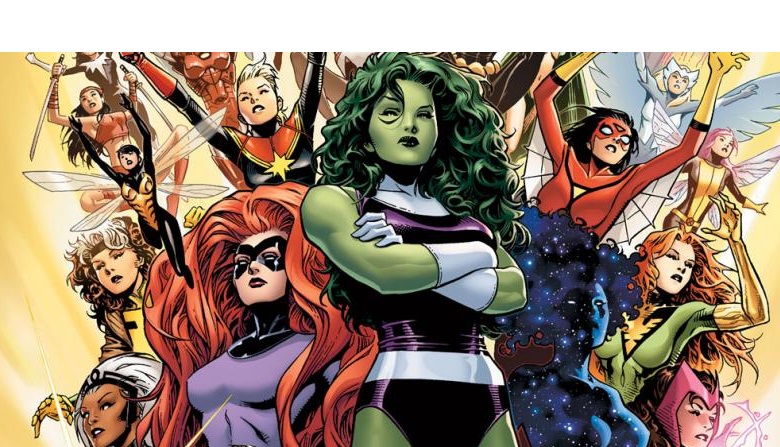Man of Steel is a good movie, and a perfectly fine start to a Cinematic Universe
I don’t love Man of Steel. Which kind of makes it weird to write a defense of it.
I do like the movie though. I think it’s pretty good. I think it’s surface-level gorgeous and has a lot of interesting themes and a solid handle on its main character. But it gets a bad rap.
Don’t get me wrong, I’m sympathetic to some of the issues with the movie. Man of Steel is far from perfect. I think the amount of action set pieces gets a little overwhelming and samey by the end of the movie. I think Russel Crowe kind of sleepwalks his way through his role, Amy Adams is underserved by the script and Henry Cavill’s grasp on the character is shaky from scene-to-scene. But every time I watch Man of Steel I like it more and more.
There’s been a groundswell of negativity towards Man of Steel since it was released. It’s odd, because if you discuss it with someone it’s almost taken as a given that you’ll dislike it. There are a few reasons for this. It’s a controversial movie because it doesn’t really play it safe thematically. It uses the trappings of a Hollywood Blockbuster to ask some serious questions about how a superhero would fit into the world and the consequences – good and bad – of his powers. Those aren’t really things you’d see in the good Marvel movies (Captain America: Winter Soldier, Iron Man) or the bad ones (Iron Man 2, The Avengers) without some sort of cop-out. Man of Steel certainly isn’t the first superhero movie to posit questions this. It takes major cues from The Dark Knight trilogy from Christopher Nolan, Man of Steel‘s seemingly hands-off producer. I think this is a great thing in order to keep superhero films as thematically and aesthetically diverse as their comic counterparts.
To keep this simple I’m only tackling – discussing, not necessarily refuting – three fairly common complaints regarding Man of Steel. I’ve separated them into categories below.
The Lois Lane & Superman Relationship
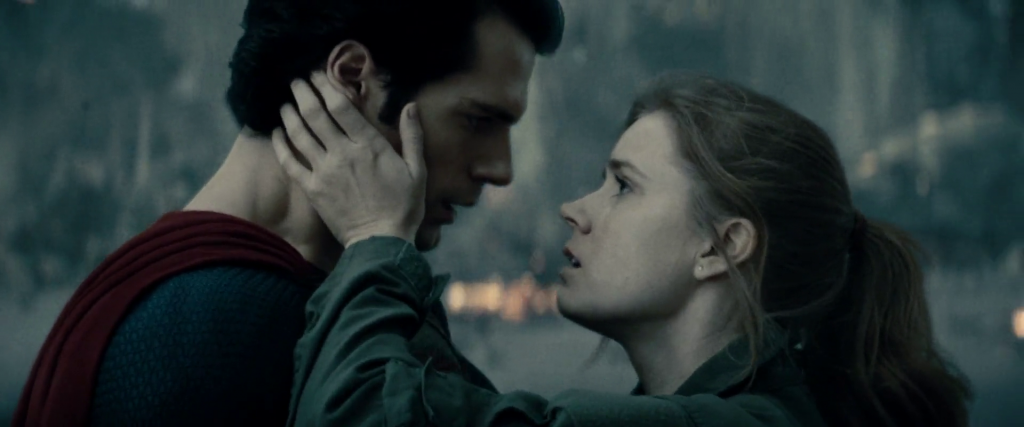
I already mentioned that Amy Adams is underserved when it comes to the role of Lois Lane, and a lot of that is a structural issue. Lois takes a backseat in the latter-half of the film and it’s a shame to see Amy Adams benched like that.
Lois comes into the movie strong. She’s smart, assertive, and – maybe due to Amy Adams – hard to dislike. Her first scene in the arctic shows her as classic Lois Lane: smart, brassy and assertive. It ends up being a fantastic start to their relationship. Lois is injured, Clark helps her and then Lois tenaciously tries to track him down. I love that Lois figures out who Superman is before he’s even Superman. She shows a lot of spark, and Amy Adams is great, until they kind of don’t really need her anymore. The she ends up sidelined, which is a shame.
But that isn’t what people have a problem with. People have a problem with The Kiss.
Superman sets down in the rubble of a block of Metropolis after destroying an alien terraforming robot and destroying Zod’s ship. Lois sets down in the rubble after the plane she was on crashes into a Kryptonian ship and she falls to her imminent death before Superman saves her.
People think it’s crass that they exchange cute lines and kiss? I think it’s crass not to allow a little love after an apparent end-of-the-wold crisis.
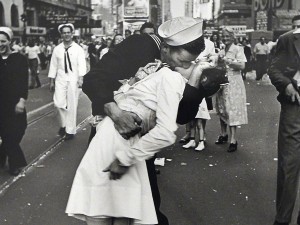
(Admittedly this isn’t a great comparison because the WWII kiss wasn’t in the rubble of Pearl Harbor, but I stand by it.)
Now, if you didn’t buy into the relationship between Lois and Superman prior to the kiss I totally understand the tonal whiplash you’d feel while watching it. I just find that hard to believe. Amy Adams, one of the greatest actresses of our generation, is only really giving it her all when she’s acting opposite Henry Cavill. And the same is true of Cavill. He actually manages to focus some charm into his performance when they share the screen. The interrogation room scene between Superman and Lois Lane is maybe the most alive the two actors get. They both crackle with chemistry, a spark that doesn’t totally ignite in the rest of the movie.
The complaint about the post-destruction kiss does makes sense when you consider that the Superman and Lois relationship is put on hold in order to centre stage Superman’s readiness.
It also doesn’t help that Antje Traue’s Faora and Christopher Meloni’s Colonel Hardy have some insane chemistry in their few short scenes. Amy Adams and Henry Cavill are fighting for second place at best.
All Things Jonathan Kent
“What was I supposed to do? Just let them die?”
“Maybe.”
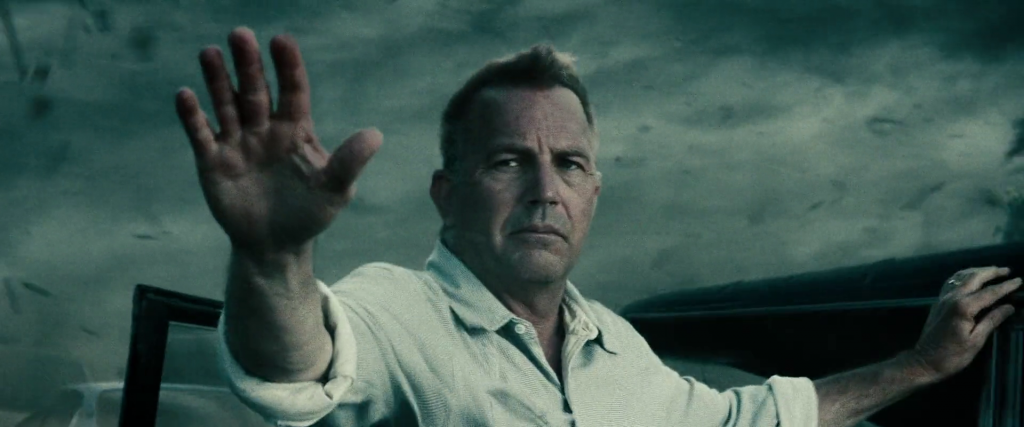
When it comes to Jonathan Kent the major complaints seem to revolve around two scenes. The one quoted above is my favourite of the scenes, and maybe my favourite scene in the whole movie, so I’ll talk about it first.
Kevin Costner puts in the best performance in Man of Steel, give or take a Michael Shannon. He plays off of his own image, the inherent persona of “Pa Kent” and the quintessential of a worried father. He easily – and surprisingly – outclasses Russell Crowe as a father figure. Crowe’s stoic scientist saviour performance only comes through in the opening, fading away to bored sleepwalking in his later scenes. While that’s maybe a byproduct of Crowe playing a projection of the character, it still isn’t very dynamic to watch.
But back to Costner!
The quoted scene takes place after Clark rescues a bus full of his schoolmates from drowning after a crash. He asks his father a simple question and Jonathan Kent gives an honest answer. A lot of people hate the answer. They either don’t get it or just don’t appreciate the direction of the character.
This Jonathan Kent is a guardian for Clark more than someone who imbues him with down-home country wisdom. He’s concerned about how the world will view him, the specific twist in Man of Steel is that he’s not just concerned for Clark’s safety – although it’s that too – he’s concerned for he human race in its entirety. He’s worried about how Clark will be received and when he’ll be received. Jonathan Kent is also just straight-up worried about how his son will act as a world-renowned saviour. A 12-year-old isn’t equipped for that. Jonathan Kent knows this.
That’s not to say he’s a totally rational actor in all this. The rest of the scene entails Jonathan Kent revealing the spaceship Clark fell to Earth in to his son for the first time. Jonathan confirms that, regardless of Clark’s origins, he is without doubt his son. Without Costner’s total commitment to this part it may have been glossed over or undersold. Costner knocks the line-reading out of the park. His reasoning for Clark maybe not saving the bus is morally nuanced while still erring on the side of fatherly and touching.
The second issue people have with Jonathan Kent is his death scene.
This one is slightly harder to defend. I don’t think it’s as ridiculous as, say, Uncle Ben’s death in The Amazing Spider-Man, but it’s certainly painted in broad. It’s more thematically necessary than anything. But I think the issue a lot of people have with the scene is solved by linking the two controversial scenes together.
In the first scene Jonathan is worried that Clark, and the world, aren’t ready for his powers to be known. The same is true with Jonathan’s death scene. He knows this isn’t the time or place for Clark to reveal himself. Some will argue that Clark, with his superpowers, should have been the one to go back and rescue the people and the family dog. But this is ignoring all of the family dynamics that were already set up. As Jonathan said in the earlier scene, “you are my son”. Jonathan believes in his son. He wants to protect him and he believes Clark was sent to Earth for a reason. And Jonathan is willing to die for that belief. Two things are more important to him: that Clark protect his mother – a fantastic Diane Lane – and that he keep still keep his secret.
The point of Jonathan Kent is that the movie is on his side. He’s almost bordering on being a righteous doomsday prepper – if you buy into him – and Kevin Costner’s performance is the key, then I believe you’ll buy into the rest of the film. I can definitely see why, if someone doesn’t like the Jonathan Kent scenes, they’d be down on the rest of the movie. I just find it hard to dislike anything about Costner’s performance. He’s a man who is simultaneously concerned about his son and the fate of the world. He isn’t an “aw shucks” country bumpkin dispensing generic “be kind to everyone” wisdom. He worries when he sees his son towering over others.
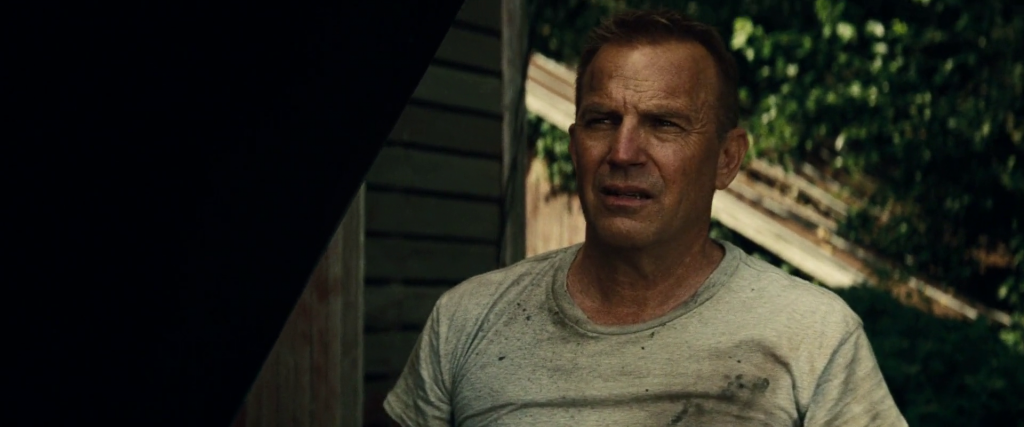
He’s great.
Superman and Zod Renovate Metropolis
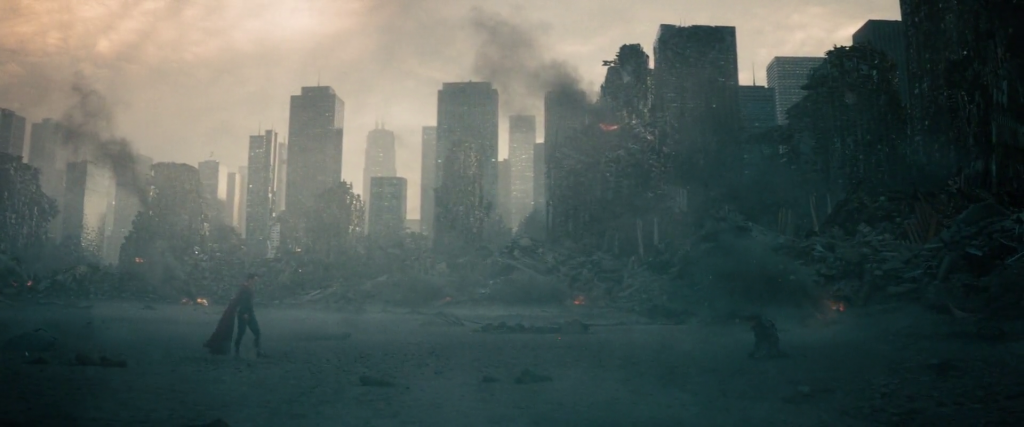
This is without a doubt the biggest criticism of the movie. It’s discussed as a fact that Superman doesn’t worry about protecting people during his fight with Zod, and it’s mentioned as a criticism that the two of them destroy a large chunk of Metropolis. I also think this is the worst, most reaching criticism of the movie that caught on because it’s catchphrase friendly and easy-to-meme.
Setting aside the fact that, throughout the fight scenes that take place in Smallville and Metropolis, Superman saves several individual people, the whole point of the destruction is the fact that this is the first time this world has seen something of this scale. It’s supposed to be devastating. It’s supposed to be viscerally uncomfortable. This is the moment Jonathan Kent was waiting for, the moment he died for.
Besides Clark Kent’s many heroic moments prior to putting on the suit – including saving a bus full of kids and an off-shore oil rig full of not-kids – Zod showing up with his crew and threatening the Earth is the first time Superman uses the full extent of his powers. The whole point of his scenes in Smallville and Metropolis is the total destruction. Superman is getting the hang of being a saviour. He’s figuring out how to live up to the potential his father knew he had.
Zod, as played by Michael Shannon, is fun as hell. He’s determined, principled and crazy-mad. Which is always what you want in a villain. What is pretty much an understated Michael Shannon performance ends up being one of the best roles in the movie. He’s following in the footsteps of Terrence Stamp but he manages to make the role of Zod completely singular. Because of this you buy into Zod’s total devotion to his species and his complete blindspot to anything else. Even though Superman is the “Last Son” and a practical saviour Zod can’t stand it. To Zod, Superman is a race traitor, just like his father.
Once the terraforming plot is foiled Zod goes for broke, attacking Superman in a practical suicide mission. His whole life is destroyed once he realizes it’s just him and Superman left. He wrecks buildings left and right. And Superman is always there trying to stop him. He even takes him into outer space where Zod destroys a satellite – a Wayne Enterprise satellite, wink wink, Batman v Superman – and comes rocketing back to Earth.
The major criticism of the scene is the amount of destruction. Again, that’s a legitimate criticism if you’re not into it, but that’s not what the movie is about. If you’re willing to meet the movie halfway you have to understand what it’s trying to do. Without the terrifying devastation of Metropolis we wouldn’t have the scene of Laurence Fishburne’s Perry White deciding to stay with Rebecca Buller’s trapped Jenny. Without the carnage on the streets we wouldn’t understand Superman’s urgency to stop Zod. Without Michael Shannon’s performance we wouldn’t fully grasp the depths to which Zod is willing to sink to, and arguably the depths he’s genetically predisposed to go. Throughout the action setpieces they throw us enough scenes of Superman saving people to satiate the audience – although, I guess, apparently not – and it works. When they overdo it, like Avengers: Age of Ultron‘s over-the-top-yet-lacking rescue situations in its finale, it becomes trite and boring and loses its human elements. When Superman is saving his mother or Lois, or when Perry White is saving Jenny, it means something.
Which leads me to the last, biggest issue with Man of Steel: Superman kills Zod.
I get why it’s rough seeing Superman kill someone. He’s representative of truth, justice and the American way. But making a hardline “Superman would never kill” stance is ignoring any context around the scene. It ignore everything the movie has been building towards. Believing that Superman takes killing the last remaining member of his race lightly is just being ignorant of the previous two-plus hours of character development. Superman is making a final choice in that scene.
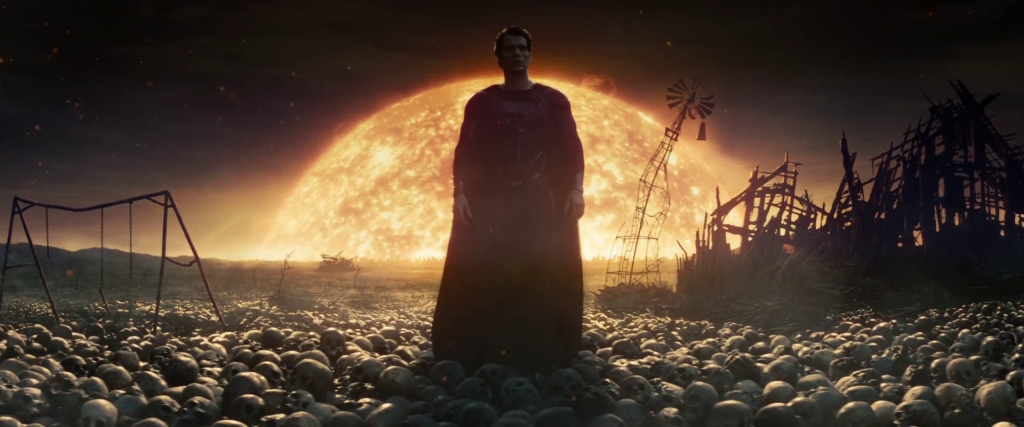
Again, Man of Steel is not a great movie. But it is a good movie and it is a perfect start to DC’s film universe. If they’re going to make an interconnected cinematic universe – which, it seems, every movie studio with a comic book property is trying to do – then there are definitely worse ways to do it. It’s certainly as good as Iron Man, just more ambitious and lacking the singular charisma of Robert Downey Jr.
I’m excited about how Batman v Superman will pay off the themes set up in Man of Steel. I’m excited to see Batman as a grumpy, old, Conservative, truther who will learn the error of his ways. And it’s all built off of Man of Steel‘s groundwork. Not to make it a company comparison, but there’s nothing in Marvel’s line up that excites me that way. Which isn’t to say that Marvel doesn’t have great movies. I’m just saying that Man of Steel attempts to do a lot more than Thor: The Dark World, and it succeeds. It isn’t my favourite superhero movie, but I’m pretty sure it cracks my top ten.
I don’t mind if you don’t like a movie, but if you feel like you made a snap judgement then give it a second look. If after that you come to me and say “what was I supposed to do? Just like this bad movie?”
I’ll say, “Maybe”.
